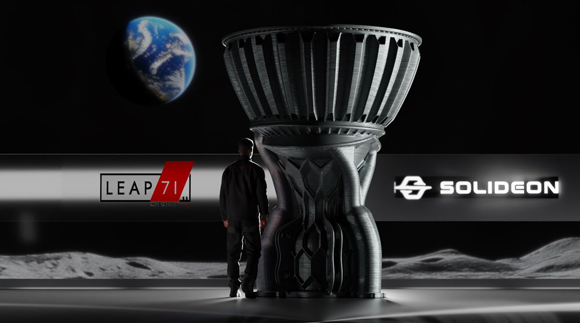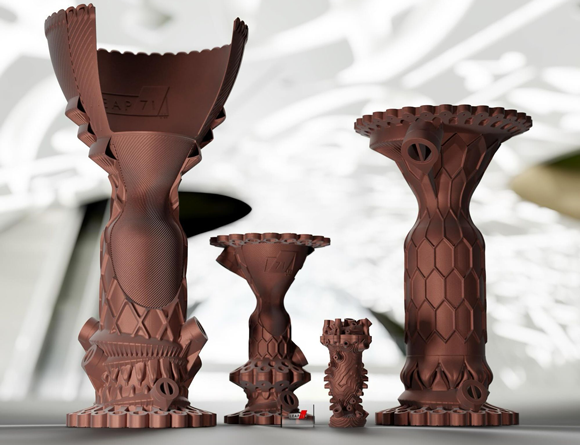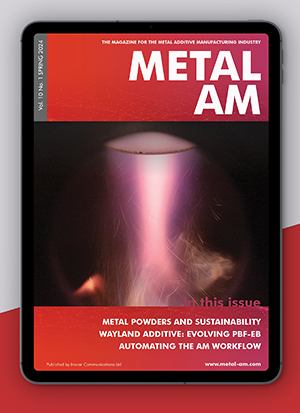Solideon and LEAP 71 collaborate on large-scale additively manufactured space hardware
April 2, 2024

Solideon, a provider of collaborative robotic metal Additive Manufacturing systems based in Berkley, California, USA, and LEAP 71, a developer of computational and AI-based engineering technology based in Dubai, United Arab Emirates, have signed a strategic agreement to collaborate on the design and production of multi-metre-scale hardware for space applications.
The two companies will work together to build metal structures of significant scale with the eventual goal of enabling off-planet production.
LEAP 71 and Solideon have been collaborating for the past year to interface between LEAP71’s proprietary Computational Engineering Models (CEM), which are generative frameworks for building physical objects, and Solideon’s large-size collaborative robotic metal manufacturing technology, Aperature.
Josefine Lissner, Founder and CEO of LEAP 71, shared, “Access to space will expand significantly in the coming years. But how do we build the large components that will be needed to create extraterrestrial infrastructure? LEAP 71’s computational models can design sophisticated space hardware, however, limitations of the current manufacturing processes, including the small build volumes of most industrial 3D printers, are holding us back. Solideon will help us produce objects that are enormous by today’s standards.”

Solideon’s robotic system, Aperature, integrates multiple manufacturing steps, including Wire Arc Additive Manufacturing (WAAM), CNC milling, and subcomponent assembly. The computational models developed by LEAP 71, generate geometric data and process input for all the separate steps, taking the capabilities and constraints of each production method into account.
The companies are targeting several sectors, including the manufacturing of large rocket propulsion systems, as well as components for infrastructure in space.
Oluseun Taiwo, Founder and CEO of Solideon, commented, “A spacefaring society needs new production technologies that surpass conventional terrestrial approaches. The Aperture system combines many steps into one cohesive, autonomous, and collaborative whole. We can now manufacture large-scale objects on Earth and eventually will do so in zero gravity. By tightly integrating the engineering algorithms created by LEAP 71 with our software-driven production system, we can build objects that move space technology to a new level.”
Download Metal AM magazine

















